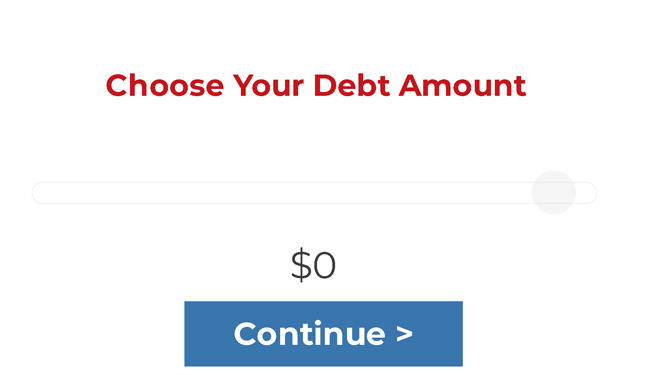High-interest debt can make it difficult to reach your financial goals, no matter how much you owe. It can take months or years to pay off your debt, leaving you feeling frustrated and stressed. If you’re struggling to get out of debt, there are a few things you can do to ease the burden and help you reach your goals.
Debt consolidation is a great way to manage multiple debt payments. By taking out a new loan, you can pay off existing debts and save money on interest. There are several different options for debt consolidation, including consolidation loans, balance transfer credit cards, student loan refinancing, home equity loans, and HELOCs. Choose the option that best fits your needs and get started on the path to financial freedom.
What is debt consolidation?
Debt consolidation can be a helpful way to manage multiple debts. By consolidating your debts into one monthly payment, you can save money on interest and make it easier to stay on top of your bills. If you’re considering consolidating your debts, talk to a financial advisor to see if it’s the right move for you.
The types of debt that you can merge with debt consolidation include:
- Auto loans
- Credit cards
- Medical debt
- Payday loans
- Personal loans
- Student loans
By consolidating your debts into one loan with a lower interest rate, you could save money on interest and make it easier to manage your payments. Keep in mind, however, that debt consolidation won’t erase your balance; you’ll still need to repay the full amount you owe.
Types of debt consolidation

There are a few options available to consolidate debt.
Debt consolidation loan
Debt consolidation loans are a great way to reduce your monthly payments and get out of debt faster. By consolidating multiple loans into one fixed loan, you can save money on interest payments and pay off your debts sooner. Typically, consolidation loans have terms between one and 10 years, and you can consolidate up to $50,000 in debts.
Different lenders have different policies on how loan proceeds can be used. Some may require that the money be used to pay off outstanding balances on credit cards and loans, while others may give the borrower more freedom in how to use the funds. In either case, the borrower will need to make monthly payments to the new lender for the duration of the loan.
It’s important to focus on paying off debts with high-interest rates first. If you can get a loan with a lower interest rate, it makes sense to consolidate your debt. However, you’ll end up paying more in interest if you extend the loan term.
Balance transfer credit card
There are multiple ways to pay down your debt, but one of the most effective debt consolidation methods is to transfer your balance to a credit card with lower interest rates. This is what is known as balance transfer credit cards. By consolidating all of your high-interest debt into one account, you can save money on interest and speed up the process of becoming debt-free.
Many balance transfer credit cards offer an introductory period with a 0 percent APR. This can last from 12 to 21 months, and if you are able to pay off all or much of your debt during this time, you could save a great deal on interest payments.
There are a few things to consider before consolidating your debt with a balance transfer credit card. Although it may seem like a good idea to have one monthly payment, if you have a large outstanding balance after the period, you may find yourself in more debt down the road.
Student loan refinancing
Student loan refinancing is a great way to get a lower interest rate if you have high-interest student loan debt. It allows you to consolidate all of your federal and private student loans into one monthly payment with better terms.
Refinancing your student loans can be a great way to consolidate your debt and save money on interest. However, there are some things you should keep in mind before you refinance. For example, if you refinance federal student loans, you will no longer be eligible for certain protections and benefits, like income-driven repayment or deferment.
Home equity loan
If you own your home, you may be able to get cash out of it through a home equity loan. This type of loan lets you borrow against the value of your home, using it as collateral. Home equity loans typically have repayment periods of 5-30 years, and you can usually borrow up to 85% of your home’s value.
You may be able to get a lower interest rate on a loan secured by your house than you would for a credit card or personal loan. However, if you default on the loan, your house could be foreclosed.
Home equity line of credit
Home equity lines of credit (HELOCs) work like revolving lines of credit, letting you withdraw funds as needed with variable interest rates. However, instead of using your credit score to determine your borrowing limit, HELOCs tap into the equity you’ve built up in your home. This means that the amount you can borrow is largely dependent on the value of your home.
If you’re looking for long-term financing, you might want to consider getting a HELOC. With an average draw period of 10 years, you can borrow funds for quite a while before having to start repaying the loan. The repayment period can last up to 20 years, giving you plenty of time to get your finances in order.
How to consolidate debt

If you’re trying to figure out a way to consolidate your debt, the process is fairly similar no matter which method you use. Here’s how to get things going:
- Step 1: Get prequalified. You can research lenders and get prequalified for a loan without impacting your credit score. This way, you can compare loan offers and find the best option for you. Be sure to consider the loan amount, term, interest rate, and fees when making your decision.
- Step 2: Compare loan offers. Now that you have several loan offers, it’s time to compare them and see which one makes the most financial sense. Pay attention to interest rates and fees, as they can vary significantly between lenders. A lower interest rate isn’t always the best deal if there are high origination or processing fees.
- Step 3: Gather the documents. When you are ready to apply for a loan, it is important to have all of the required documentation on hand in order to avoid any delays in processing. In general, you will need a copy of your most recent pay stubs, bank statements, or tax returns (if you are self-employed). These documents can usually be uploaded through the portal that you use to submit your online application.
- Step 4: Submit your application. Now that you know what you need to do in order to get a loan, it’s time to fill out a formal application. Make sure that all of the information you enter is accurate and matches the documentation you provide. Be prepared to answer questions about your identity, employment, income, and housing status. Answering these questions truthfully will help to verify your information and speed up the process.
- Step 5: Pay off your balance. If you’re approved for debt consolidation, you’ll receive the funds you need to pay off your balances. You can then reach out to your lenders and creditors to make payments, or have the lender do it for you if it’s an option they offer. Either way, consolidating your debt can help you get back on track financially.
If you’re considering consolidating your debt, it’s important to understand the difference between consolidation and settlement. With debt consolidation, you’ll use funds from a new consolidation loan to pay off your existing debts. Debt settlement, on the other hand, involves negotiating with creditors to agree on a lump-sum payment that’s less than what you actually owe.
Pros and cons of debt consolidation
Debt consolidation can be a helpful tool for managing your finances, but it’s not right for everyone. Before you consolidate your debts, consider the pros and cons to make sure it’s the best decision for you.
Pros
You could improve your credit score
If you are looking to improve your credit score, consolidating your debt could be a helpful option. Paying off your outstanding balances with a consolidation loan can lower your overall debt-to-income ratio and may also help to improve your payment history. Although there is no guarantee that your score will increase, consolidating your debt may be a worthwhile strategy to consider.
You could decrease your total interest costs
If you are struggling with high-interest rates on multiple loans, consolidating your debt into a single loan with a lower interest rate can save you money. This can be a great way to get out of debt and improve your financial situation.
You may simplify your repayment process
Debt consolidation can make repayment much easier to handle each month. It can be tough to keep track of different credit card or loan payments, especially if they’re due on various dates. Having one debt consolidation loan makes mapping out your month much more straightforward and helps you stay on top of payments.
Cons
You could lose your collateral
If you take out a secured loan to finance your debt, such as a home equity loan or HELOC, you risk losing the property you put up as collateral if you can’t make the payments.
You could possibly pay more
The potential cost of debt consolidation can be high, depending on the loan terms. If you choose a loan with a longer repayment timeline, you may end up paying more in interest over time. However, consolidating your debt can also lead to savings if you are able to get a lower interest rate.
There may be upfront costs
While consolidating debt can help reduce monthly payments, it’s important to be aware of any potential fees that may be associated with the process. This includes origination fees, balance transfer fees, and closing costs. Weighing these against the potential savings can help you decide if debt consolidation is right for you.
So, is debt consolidation right for you?

Debt consolidation can be a great way to save money on interest and pay off your debts faster. However, it’s important to make sure that your spending is under control and that you have a good credit score before consolidating, as this will help you qualify for a lower interest rate. Additionally, consider your current level of indebtedness when deciding if consolidation is right for you – if your monthly payments are manageable and you’re not using an excessive amount of your gross income to pay off debts, consolidating could be a great financial move.
When not to consolidate debt
If you’re struggling with high-interest rates and monthly payments, consolidating your debts could be a good solution. However, it’s important to make sure that you’re disciplined enough to stop using your credit cards after consolidating. Otherwise, you could end up accumulating even more debt than before. It’s also crucial to make sure that the monthly payment on your consolidation loan is affordable. If it’s too much of a strain on your budget, you could quickly fall behind and damage your credit score.
Before you make a decision to consolidate your debt, it is important to consider your credit score. If your credit rating is lower, the lender may only offer higher interest rates to help you pay off what you owe. This can end up costing you more in the long run.
The bottom line
Are you looking to consolidate your debt? Before making a decision, it’s important to understand why you’re in debt in the first place. This will help you determine whether debt consolidation is the right solution for your situation.
There are many reasons why people find themselves in debt. Maybe you had an unexpected medical expense or lost your job and fell behind on bills. Whatever the reason, it’s important to get a handle on your finances and develop a plan to pay off your debt.
Debt consolidation can be a helpful tool to get out of debt, but it’s not right for everyone.






